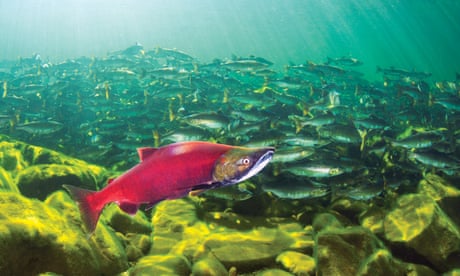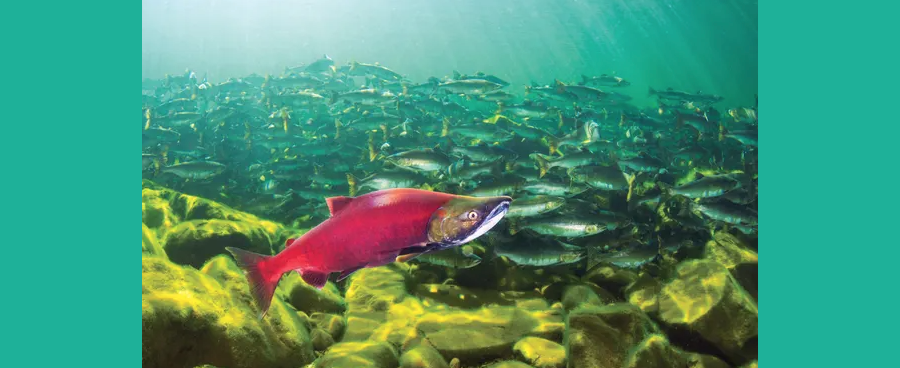Government was in possession of a newly-released report that linked large-scale farms and wild salmon to contagious virus
||| FROM THE GUARDIAN |||
Canada was warned in 2012 by its own scientists that a virus was infecting both farmed and wild salmon, but successive governments ignored the expert advice, saying for years that risks to salmon were low.
Justin Trudeau’s government has said it will phase out open-pen industrial fish farms off the coast of British Columbia by 2025. But both his government and the previous Conservative government were in possession of a newly released report that linked large-scale farms and wild salmon to the highly contagious Piscine orthoreovirus (PRV).
In 2012, biologists with the department of fisheries and oceans investigated the presence of the virus, which has been found in both farmed and wild salmon. In March, a federal information commissioner ordered the report be released, after a multi-year access-to-information battle between the group Wild First, which opposes open-pen salmon farms, and the federal government. Details of the report were made public on Thursday by the Globe and Mail.
Kristi Miller-Saunders, a federal biologist and an author on the study, called the delay in releasing the report a “travesty” and said its omission has contributed to longstanding doubt over whether farmed salmon were infecting wild salmon.
PRV causes anemia and jaundice in farmed salmon. But in wild Chinook, whose numbers have collapsed in recent years, the virus is associated with a different disease which causes blood cells to rupture, leading to kidney and liver damage.
Miller-Saunders said in a statement her research was the first to discover the virus in North America and that the virus was “being actively transmitted between farmed and wild salmon in B.C.”
A study last year from the University of British Columbia confirmed her work, concluding that the closer wild Chinook are to fish farms, the higher the likelihood they’ll be infected by the Piscine orthoreovirus.
The decade-old findings take on a new urgency as both the federal government and officials in British Columbia grapple with a decimation of wild Pacific salmon stocks in the region, which experts fear could have far-reaching ecological consequences.

In addition to PRV, biologists have also argued that sea lice and mouth rot, which can be fatal in salmon, is also being transferred from farmed to wild salmon.









Friends don’t let friends eat farmed salmon.